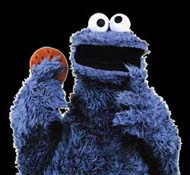ISYGF, Chapter 10: Paris is burning. Yawn.
Pg. 107, M. Swann is talking about moonlight and how it's more dramatic at the seaside:
In Paris, it's just the opposite: merely a strange glow, barely noticeable, on the fronts of the great buildings, and that faint glare in the sky, like the reflection from a house on fire, colorless and dangerless, that hint of some immense but banal happening somewhere...
Um. No, I--no. Really? Banal like a house on fire? Man, what does it take to impress a Frenchman? "Oh, I t'ought zees was somezing eenteresteeng, but non, eet is just ze house on fire. Quelle domage."
I would say Proust must be some sort of superhero--burning building, all in a day's work, call me when Magneto shows up--but, you know, this is a guy who has his autobiographical doppelganger practically fall into a faint over the mere idea of going to a play. I'm imagining Proust facing a burning building right now and... well, actually, that is kinda funny. Hee! Oh man. But my point is, burning building is totally winning that fight.
Or was late-19th century Paris so lousy with burning buildings that they were some sort of nightly event? Even so--and this comes from a resident of a city where house fires seem to happen every week or two, because the wiring in half the housing stock here was put in by drunken squirrels during the Cleveland administration, including the wiring in my own house, which is why I'm always a little nervous when I turn on a lightswitch, plus people are poor and crowding in 13 to a house and it just breaks your heart when you hear about another one going up in flames--but that's my point: Even in my town, we still sit up and notice a house fire. And two words I would not use to describe it are "colorless" and "dangerless." I mean, you ever seen a house on fire? They're pretty damned colorful, and about as dangerous as anything you're likely to find.
Banal? Think about it, Proust: For all you know, that house could be full of asparagus.
In Paris, it's just the opposite: merely a strange glow, barely noticeable, on the fronts of the great buildings, and that faint glare in the sky, like the reflection from a house on fire, colorless and dangerless, that hint of some immense but banal happening somewhere...
Um. No, I--no. Really? Banal like a house on fire? Man, what does it take to impress a Frenchman? "Oh, I t'ought zees was somezing eenteresteeng, but non, eet is just ze house on fire. Quelle domage."
I would say Proust must be some sort of superhero--burning building, all in a day's work, call me when Magneto shows up--but, you know, this is a guy who has his autobiographical doppelganger practically fall into a faint over the mere idea of going to a play. I'm imagining Proust facing a burning building right now and... well, actually, that is kinda funny. Hee! Oh man. But my point is, burning building is totally winning that fight.
Or was late-19th century Paris so lousy with burning buildings that they were some sort of nightly event? Even so--and this comes from a resident of a city where house fires seem to happen every week or two, because the wiring in half the housing stock here was put in by drunken squirrels during the Cleveland administration, including the wiring in my own house, which is why I'm always a little nervous when I turn on a lightswitch, plus people are poor and crowding in 13 to a house and it just breaks your heart when you hear about another one going up in flames--but that's my point: Even in my town, we still sit up and notice a house fire. And two words I would not use to describe it are "colorless" and "dangerless." I mean, you ever seen a house on fire? They're pretty damned colorful, and about as dangerous as anything you're likely to find.
Banal? Think about it, Proust: For all you know, that house could be full of asparagus.

